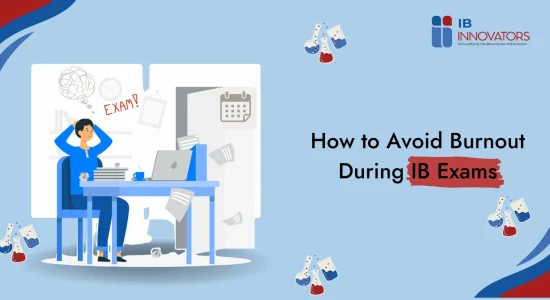November is around the corner and with it comes the pressure of IB Exams. Are you overwhelmed by the endless revision with the ticking clock of approaching exams?”
You’re not alone!
We all know that the IB Diploma Program can be mentally and physically exhausting. With months of study, internal assessments (IAs), and a syllabus packed with complex material, it’s easy to hit burnout.
But the thing is while the IB exams are important, they shouldn’t come at the cost of your well-being. Avoiding burnout during this crucial period isn’t just possible, it’s essential.
You can tackle the challenges without running on empty by managing your time, prioritizing self-care, and approaching your studies with the right mindset.
Let’s dig more and find out how to avoid burnout during IB exams.
Contact us for IB tutoring and ace your IBDP exams with IB Innovators Expert Tutors!
Understand Burnout & Its Sign

Burnout is a state of emotional, mental, and physical exhaustion caused by prolonged stress, especially when you feel overwhelmed and unable to meet constant demands. Like at the workplace and in the academic year.
It’s estimated that mostly 10% and 30% of students face academic stress throughout their educational journey.
Same as in the context of the IB Diploma, burnout can creep up on students, juggling to meet multiple deadlines, IB exam preparation, and extracurricular activities.
Burnout symptoms can be extreme fatigue, even after resting, constant anxiety about your workload, and a noticeable loss of motivation.
You may find yourself staring at a blank page, unable to start that TOK essay, or dreading an internal assessment that once felt manageable, like preparing for your IB exam or any other IB subject in which your interest doesn’t lie.
Recognizing these early signs is crucial. Many IB students push themselves to the limit without realizing they’re running on empty. By identifying the symptoms early on, you can take steps to regain balance before burnout takes a stronger hold.
Tips for Avoiding Burnout
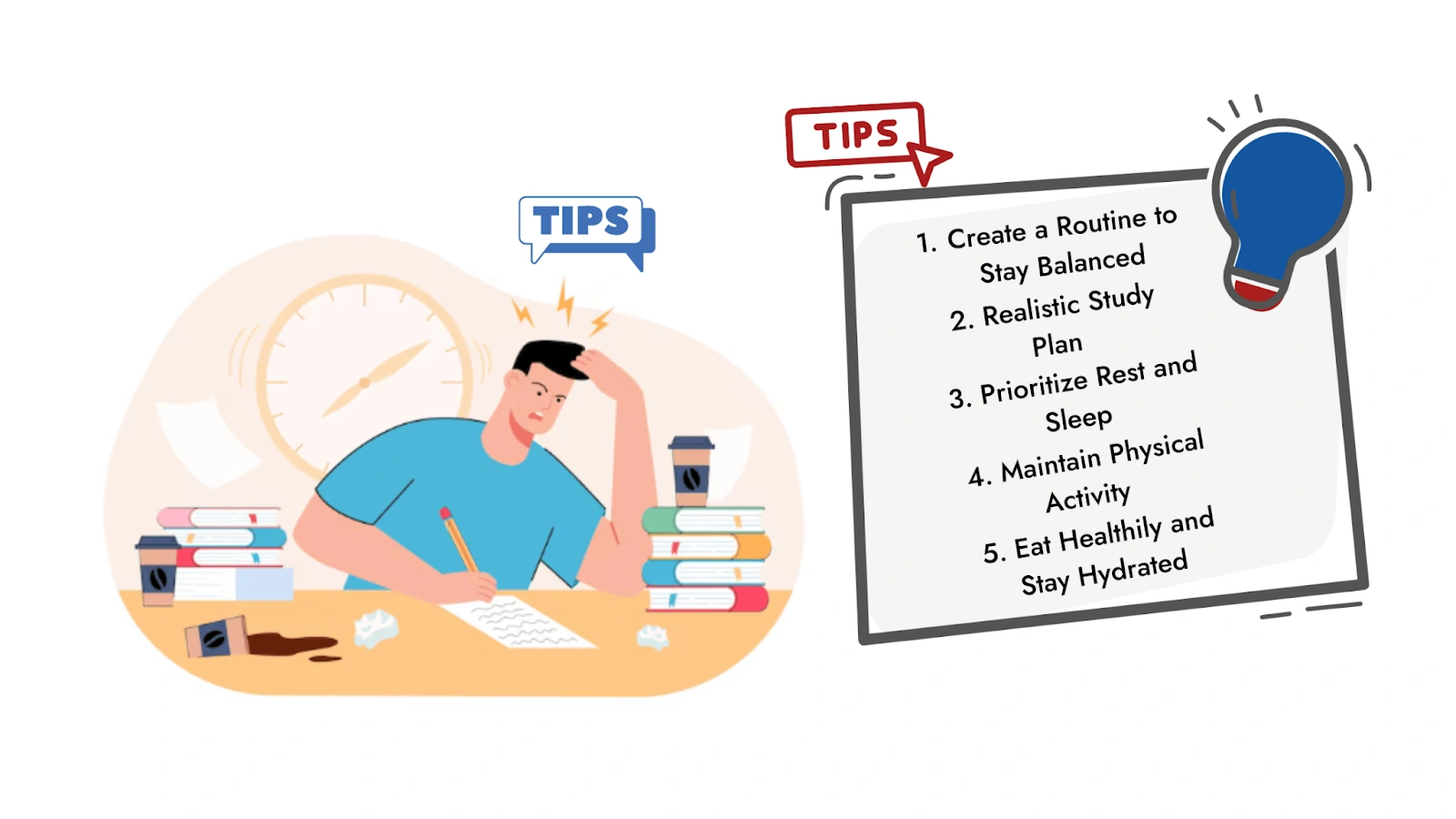
There are some major tips for an IB Diploma that you can adopt to cope with IB burnout and excel in your IB exams. Here are some of these.
Create a Routine to Stay Balanced
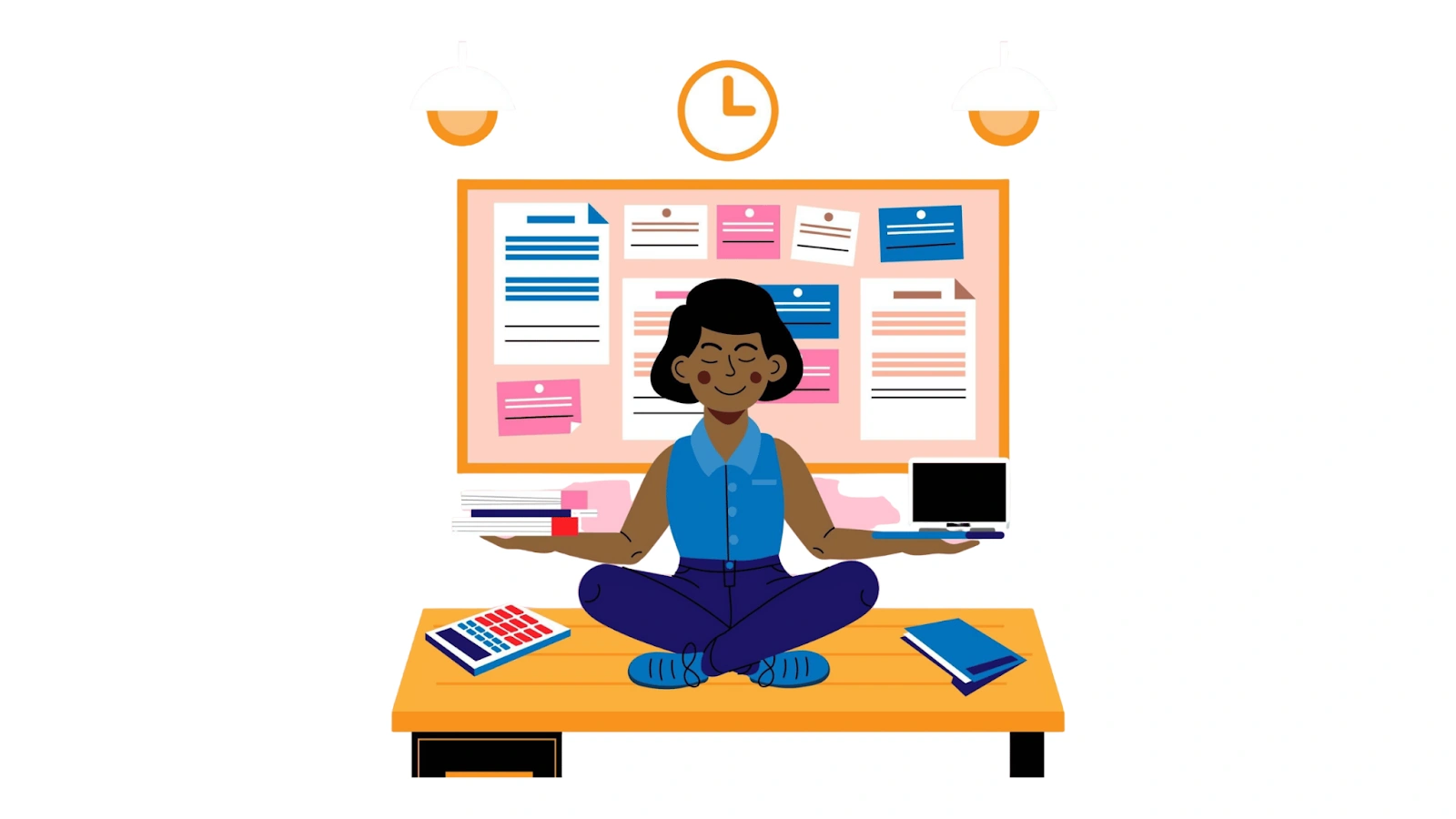
With a proper routine, your exam days can feel smooth, adding unnecessary stress. A clear routine can help bring order to your days and reduce the risk of burnout during the IB exam season.
Getting organized is the first step to staying on top. Invest in a diary, journal, or calendar to lay out your exam dates, revision sessions, and social plans. Sometimes visualizing everything you need to do shows you that it’s more manageable than you thought, which can be a great motivator to stay on track.
Prioritize having a healthy breakfast on exam days, as hunger can be a major distraction when you’re trying to focus.
Create a schedule that includes your study, break, lunch, and sleep hours to stay organized and manage your time effectively. While it might be tempting to sleep in and stay up late during study periods, this can throw you off track during IB exams.
By implementing a structured routine and staying organized, you can minimize stress, boost productivity, and set yourself up for exams.
Realistic Study Plan

One of the best ways to stay on top and score well in IB exams without feeling overwhelmed is by creating a realistic study plan. Determine what subjects you must focus on each day, dividing your time wisely.
For example! Allocate specific hours to IB Math or some complex subjects in the morning when your mind is fresh, and reserve afternoons for theory-heavy subjects like IB History or ESS. |
Break your study sessions into manageable chunks to avoid cramming, and set small, achievable goals for each day and divide the syllabus accordingly. This structured approach not only keeps your work organized but also prevents the stress of trying to tackle everything at once, reducing the risk of burnout.
Prioritize Rest and Sleep
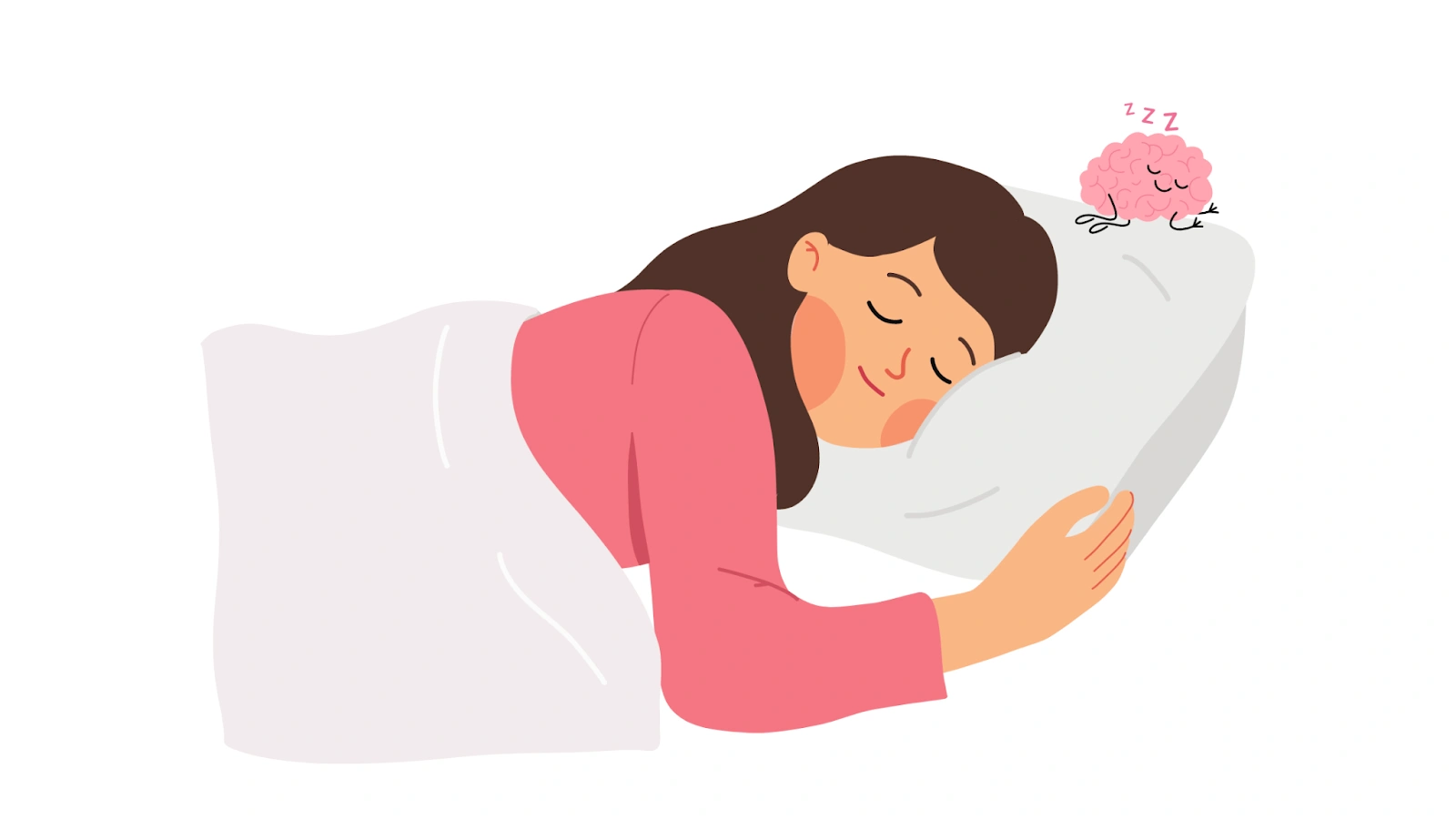
As discussed earlier during IB exams you might feel tempted by sleep and thoughts like “I’ll just stay up late and finish this chapter”.
While staying up late might feel like a productive choice, for some people it is beneficial and for some sacrificing sleep can be one of the ways to experience burnout during IB exams. Your brain needs rest to retain information and function at its best which can’t be possible staying up late.
Aim for 7-8 hours of sleep every night, especially during intense study periods. It helps you recharge physically and is critical for your memory and cognitive function, both essential for doing well during your IB exams.
So, instead of pushing through exhaustion, remember that a good night’s sleep can make the difference between a forgetful mind and one that’s sharp and ready for the challenge.
Maintain Physical Activity
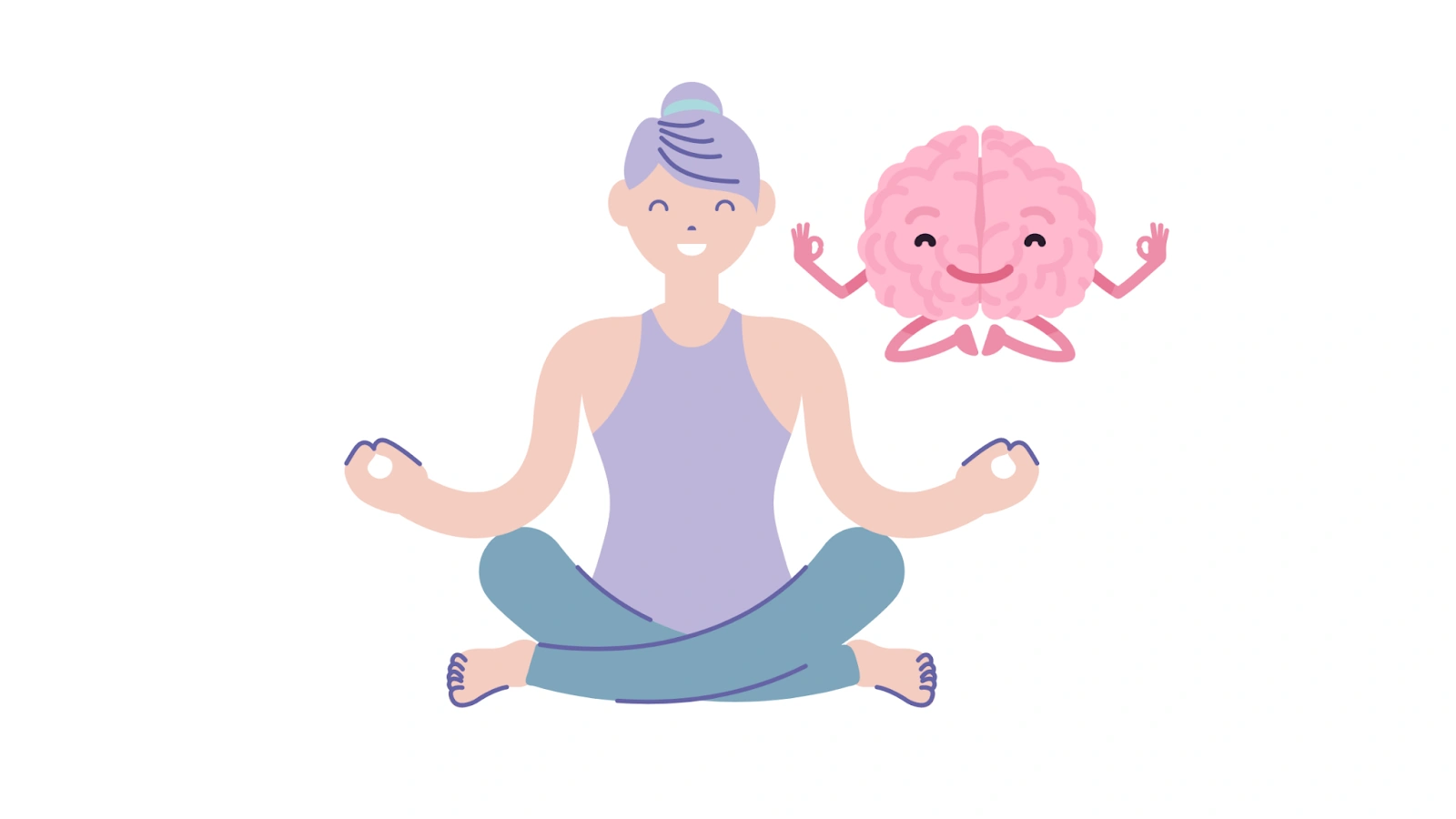
You might think exercise is a luxury you can’t afford during IB exam prep, but physical activity is one of the best stress relievers.
Exercise reduces stress hormones like cortisol, and releases endorphins, which can boost your mood and help clear your mind.
You don’t need to spend hours doing gym just a 20-minute jog, a quick yoga session, or even a brisk walk can make your body and mind active and relaxed.
Adding movement to your day keeps your energy levels up and helps you stay focused when it’s time to hit the books again, ultimately preventing burnout during your IB exams.
Eat Healthily and Stay Hydrated

Do you know what you feed your body affects your brainpower?
Eating junk food or skipping meals can make you feel sluggish and mentally foggy, which won’t help when you’re trying to focus and remember complex concepts for your IB exams.
It is seen that many students get so caught up in their IB exams that they skip meals or reach for quick, unhealthy snacks. However, neglecting your nutrition can harm your performance. Your brain needs fuel to function at its best, and that fuel comes from a balanced, healthy diet.
Incorporate brain-boosting foods like nuts, fruits, whole grains, and leafy greens into your diet. These foods provide steady energy without the crash that comes from sugary snacks.
Don’t forget to stay hydrated!
Dehydration can lead to fatigue and lack of concentration, so keep a water bottle on hand during your study sessions to help you stay sharp while preparing for your IB exams.
Conclusion:
IB exams can be incredibly challenging, but they don’t have to lead to burnout.
By understanding the signs of burnout and taking proactive steps like creating a balanced routine, prioritizing sleep, staying physically active, and nourishing your body with healthy food, you can maintain your energy levels and focus.
Remember, it’s not just about studying hard but also about studying smart. By managing your time well and taking care of your mental and physical well-being, you can approach your IB exams confidently and perform at your best without sacrificing your health.
Read our other blogs and excel in your IB exams journey.
FAQs
Common signs include extreme fatigue, even after resting, constant stress or anxiety about your workload, difficulty concentrating, and a noticeable loss of motivation. You might also feel detached from your studies or overwhelmed by tasks that once seemed manageable.
Yes, recovering from burnout is possible with the right approach. Start by recognizing the signs, take breaks to recharge, restructure your study plan, and focus on rest, physical activity, and proper nutrition. Adjusting your mindset and seeking support, whether through friends, family, or tutoring, can also help you regain balance.
Yes! At IB Innovators, our expert tutors specialize in various IB subjects, including challenging ones like IB Math and IB ESS. We focus on simplifying complex topics and breaking down your workload, so you don’t feel overwhelmed and avoid burnout in those tricky subjects.
We offer not just academic support but also strategies for time management and stress reduction. Our tutors guide you on how to balance your study schedule with breaks, sleep, and self-care, ensuring you remain productive without running out of steam.



